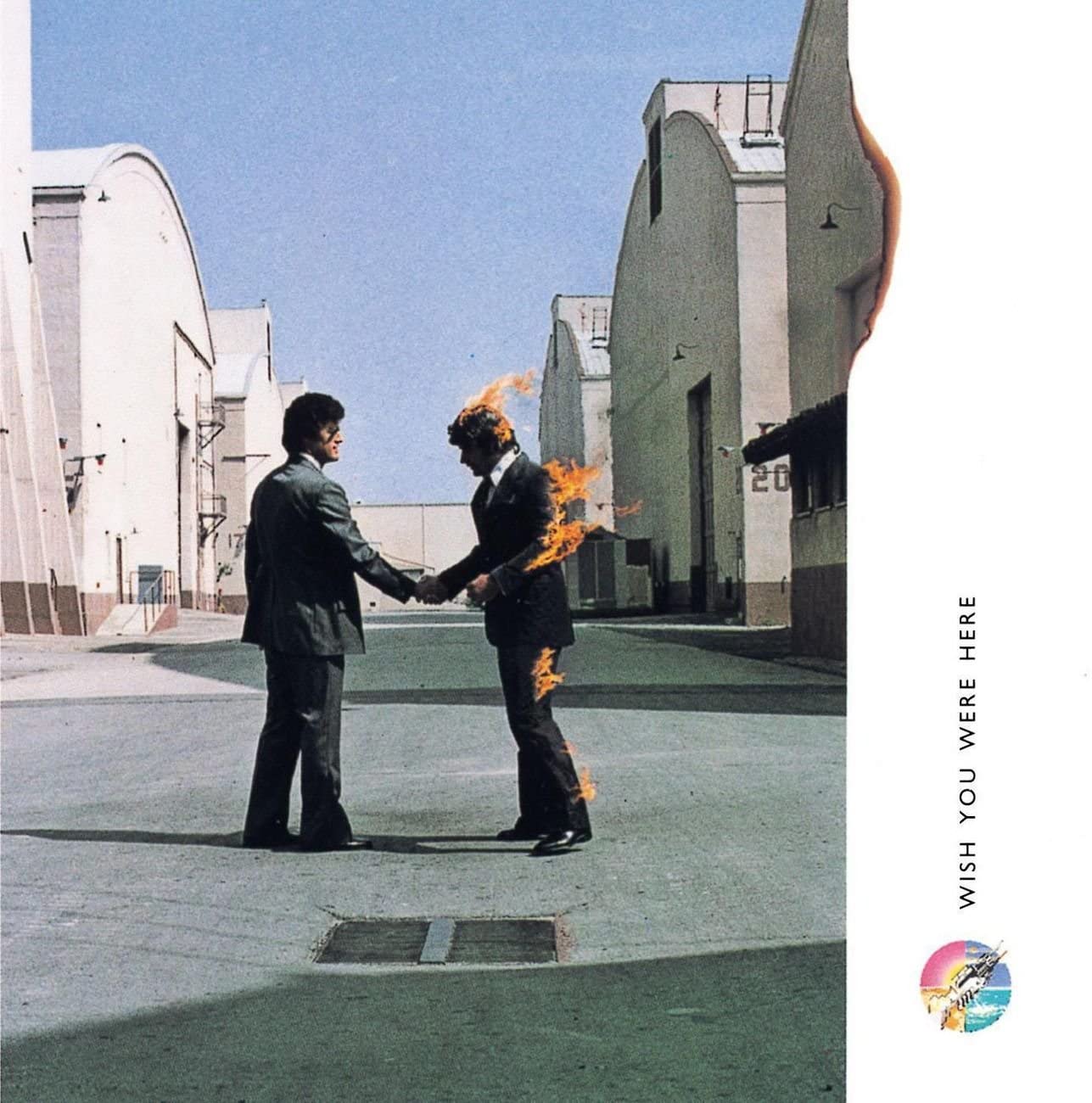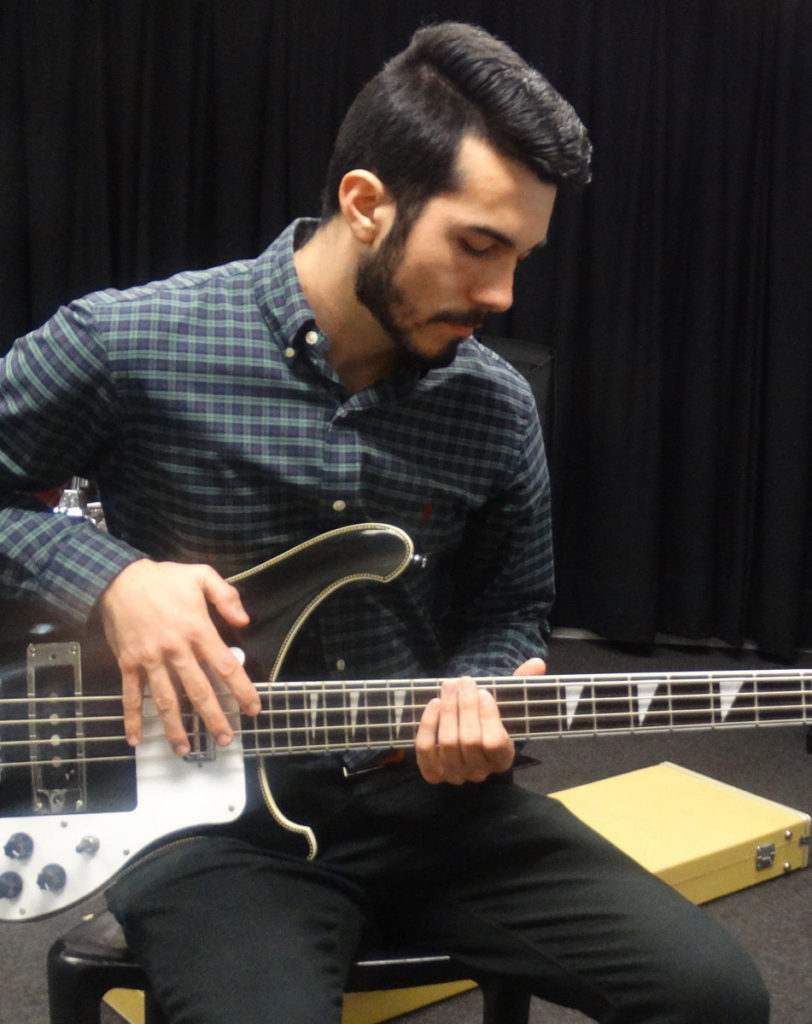29 Nov Meet Film and Game Composer, Sebastian Avila
We caught up with composer, Sebastian Avila, to hear about his career in music, key influences & the composition process.
The Interview
Melodie: Hey Seb, thanks for taking the time to chat with us! What have you been working on lately?
Seb Avila: Hey, thank you so much! Recently I’ve started making covers of the DOOM II (1994) soundtrack. The plan is to make “modern-sounding” versions of those tracks and make them available for Doom modders or any game developers that work with the DOOM engine. It was important for me to undertake this project because I’ve been a fan of a lot of the projects that have come out of the Doom modding community, and so this gives me an opportunity to give something back.

Intriguing! Tell me more, how did you first get started in music?
It’s strange that I happened to stumble into music; nobody in my immediate family is a musician, although growing up I was exposed to a lot of Western and Latin American music. The defining moment occurred in high school though: I had a couple of friends that
wanted to start a cover band. They were both guitarists and were in need of a bassist, so I just decided on a whim “yeah I’ll play bass, why not?”. Next thing I know we’re covering Metallica, Iron Maiden, Pantera and all our other favourite metal bands.
Once I got somewhat competent at bass I started writing originals, and then at some point in my teenage years, it must have occurred to me that I could write music for games. My mind was set, and so I started learning arranging and orchestration, as well as theory, and I
listened to a lot of film and video game scores.
Now that’s a cool story. What was the first album you bought?
I remember being at an op shop, maybe when I was 12 or 13, and stumbling across Pink Floyd’s ‘Wish You Were Here’ on CD. When I saw it I didn’t know what I was actually looking at, I just thought the cover looked kinda cool. The front of the CD doesn’t have any
writing on it, and I didn’t think to read the spine to figure out whose album it was, but it was only 2 bucks so I bought it. When I got home and listened to it I was blown away; I’d never listened to anything that sounded so free and captivating. Once I figured out that what I
was listening to was in fact Pink Floyd, I made it a mission to listen to everything else they’d put out, and yet to this day Wish You Were Here remains my favourite album by Pink Floyd.

Great choice! When did you first start writing music for picture?
Even when I was just learning to play bass, I knew I wanted to write music for films and games. Once I started studying music production and film composition I didn’t really wait all that long to start working on film student projects. Once I had worked on a couple of film projects I started meeting students from The Academy of Interactive Entertainment (AIE) and discovered that writing music for games can be quite different to writing for film.
What are the differences then between writing for film and video games? Which one do you enjoy more, and why?
The approach and considerations one would take when writing for interactive media as opposed to film are quite different. When you are writing music for a film you are typically trying to fill a certain time frame, and so you write your music in service of specifically allocated time slots; or cues.
For game music, you are still writing cues, but those cues are at the mercy of the mechanics of the game. Video game composition is intimately tied to how the gameplay is programmed, and you are servicing that programming by writing cues and stings that can seamlessly blend in and out of each other so that your music dynamically adapts to whatever the player is doing.
This is why I feel that in order to write music for games you need to play games yourself because you have to have a fundamental understanding and familiarity with how music is capable of changing and evolving within the context of a game engine. The potential for creative and immersive dynamic music algorithms is really the reason why I’ve always preferred writing music for games as opposed to films.
Amazing, like soundtracking a Choose Your Own Adventure book. Favourite thing about being a composer?
I like that composing is one of those things where you can never reach a point where you feel like you’ve reached the limit of your potential. There’s such a wide array of tools and techniques that it would take you about ten lifetimes to learn everything about composition.
Add on top of that learning how to mix, arrange, orchestrate, recording, mastering, and now you’ve got yourself about 100 lifetimes of information to sift through! It’s virtually impossible to reach a point where there isn’t something more you could be learning, and that to me is very inspiring.
That’s an inspiring way to look at it. What’s been the highlight of your experience in the music industry so far?
A couple of years back, my band at the time did a gig at The Tote in Collingwood Melbourne. King Parrot filmed their video clip Dead End in there, and there’s something about the energy in that place when you walk in, you can feel it breathing through the walls. The crowd was insane, by far one of the rowdiest crowds we’d ever performed to, which is what you want when you’re playing piercingly loud rock music. By far my favourite gig I’ve ever done hands down!

Can you take us through your writing process?
I usually like to start with a hook. If I’m writing a rock/metal piece this is usually a riff or even just a short lick. If it’s an electronic or synthwave track I’m working on, I usually like to start with an arp sequence or a bassline that can serve as a hook.
Once I have about two to four bars of music, I like to layer in drums and percussion, and then work on creating variations of those drum beats as well as compiling different drum fills which I can use throughout the song.
Leads and melody parts usually come last for me, but there are times when a melody would just pop in my head and I end up transcribing it and writing an entire piece out of that initial melodic idea. Before I start mixing I print all my midi/instrument tracks to conserve on CPU, but it also forces me to psychologically commit to that sound, or else I’d just be tweaking tone knobs and parameters all day. If I need an arp sequence I’ll usually turn to the Arturia Minibrute or the TAL-U-N0LX, which is a software emulation of the Juno 60. I love that synth, as soon as you play something it just screams the 80s! If I’m looking to mix up my workflow a little bit, I’ll pull out the Behringer Neutron which is a semi-modular synthesizer. That thing can do everything: fat basses, screaming leads, kicks, snares, atmospheric layers, the only setback is that it’s monophonic.
What DAW do you use?
I use Pro Tools 11 for recording, writing, mixing and mastering. It’s the DAW I started with back when I began studying composition and music production, so I’m extremely comfortable and used to its quirks. I tried Ableton once, although it’s extremely powerful and versatile I felt like it was forcing me into a certain workflow which I’m not used to. With pro tools sometimes I just like to hit record and go ham on a synth or my bass for a good 15 to 20 minutes, and if I feel like I need to do some more recording I can just make another playlist. And so every spur-of-the-moment idea that comes along is catalogued and readily available.
And what keeps you busy outside of music?
At the moment I’m trying to get through my ever-growing collection of books. I’ve actually compiled a list of “must-read books” and I’ve categorised them into genres, and the list keeps growing and growing. Lately, I’ve been trying to read a lot more non-fiction and history; the last book I got through was Trevor Royle’s ‘The Wars of the Roses’. Also, I plan on hitting up the cinemas soon; there’s a lot of films that have come out during lockdown that I can’t wait to see.
Favourite band/artist and why?
This is one of the toughest questions to answer. Obviously, Pink Floyd holds a very near and dear place in my heart, however I don’t listen to them often enough to consider them my favourite band. As far as favourite video game composer, frankly it might be Grant Kirkhope. He was one of the earliest practitioners of dynamic music, which was far outside the norm of simply looping a piece of music. Favourite film composer, I think would have to
be the late Johann Johannsson. His soundtrack for Arrival is, in my opinion, one of the most original sounding scores ever made; there are times when it sounds completely alien and otherworldly. He also scored Panos Cosmatos’ Mandy, which is one of my favourite films.
Favourite track of yours in the Melodie library and why?
For me, it has to be Eternal Embers. I remember it as the first metal track I wrote in which I was really pleased with the quality of the sound and the production. When I listen to it now I can pick out things that I would probably change or enhance, but at the time that track represented a new direction in my music production.
Eternal Embers is a fantastic piece of work. Thanks for your time Seb 🙂


